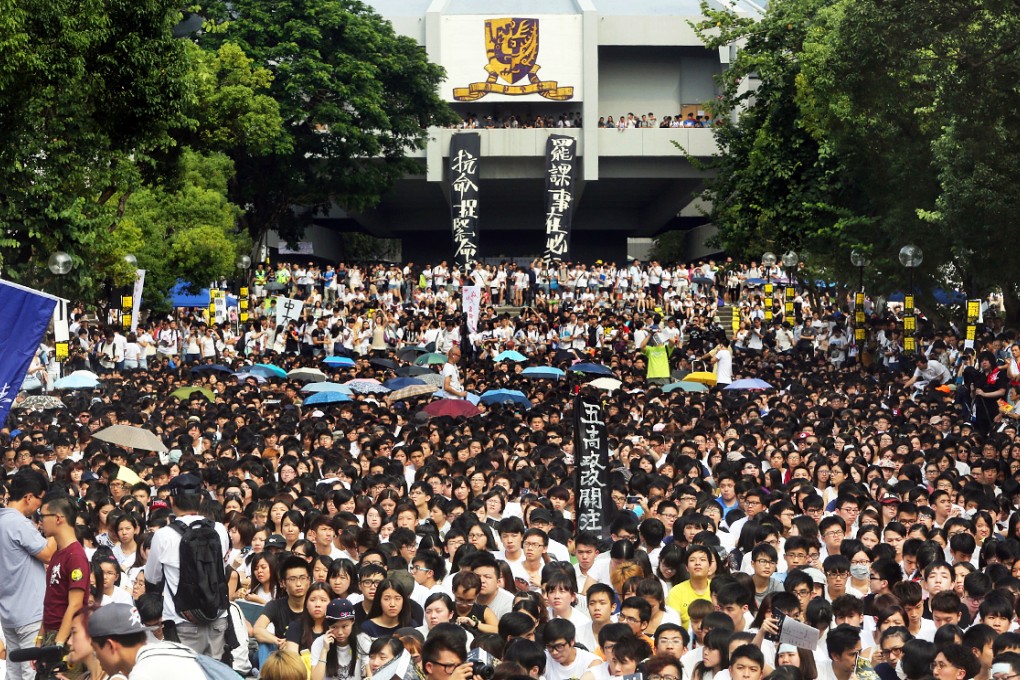Update | The boycott begins: thousands of students stage classroom walkout over Beijing’s electoral reform plan
Thousands of university students from across Hong Kong formed a sea of white as they arrived in Chinese University to join the week-long class boycott for democracy which began at 2pm.

Thousands of university students from across Hong Kong formed a sea of white as they arrived in Chinese University (CUHK) to join the week-long class boycott for democracy which began at 2pm.
Students gathered at the university mall in Sha Tin, wearing white with yellow ribbons pinned to their shirts – the symbol of the city’s democracy movement. Organisers put the turnout at 13,000.
Watch: Thousands of Hong Kong university students join week-long class boycott for democracy
The one-week school strike beginning today is seen as the curtain raiser for Occupy Central, when thousands are expected to blockade roads in central Hong Kong in protest at Beijing ruling out an open election of the next chief executive in 2017.
Addressing the gathered students, Lester Shum of the Federation of Students said the strikes will begin a new wave of civil disobedience needed to stop the "colonisation" of Hong Kong by Beijing.
"In the colonial days, the British ruled Hong Kong as if they were a group of refugees and obedient subjects," Shum said. "On August 31, [Beijing's] decision would allow the central government and [tycoons] to continue to manipulate the election. Isn't that applying the colonial [approach] to Hong Kong?"